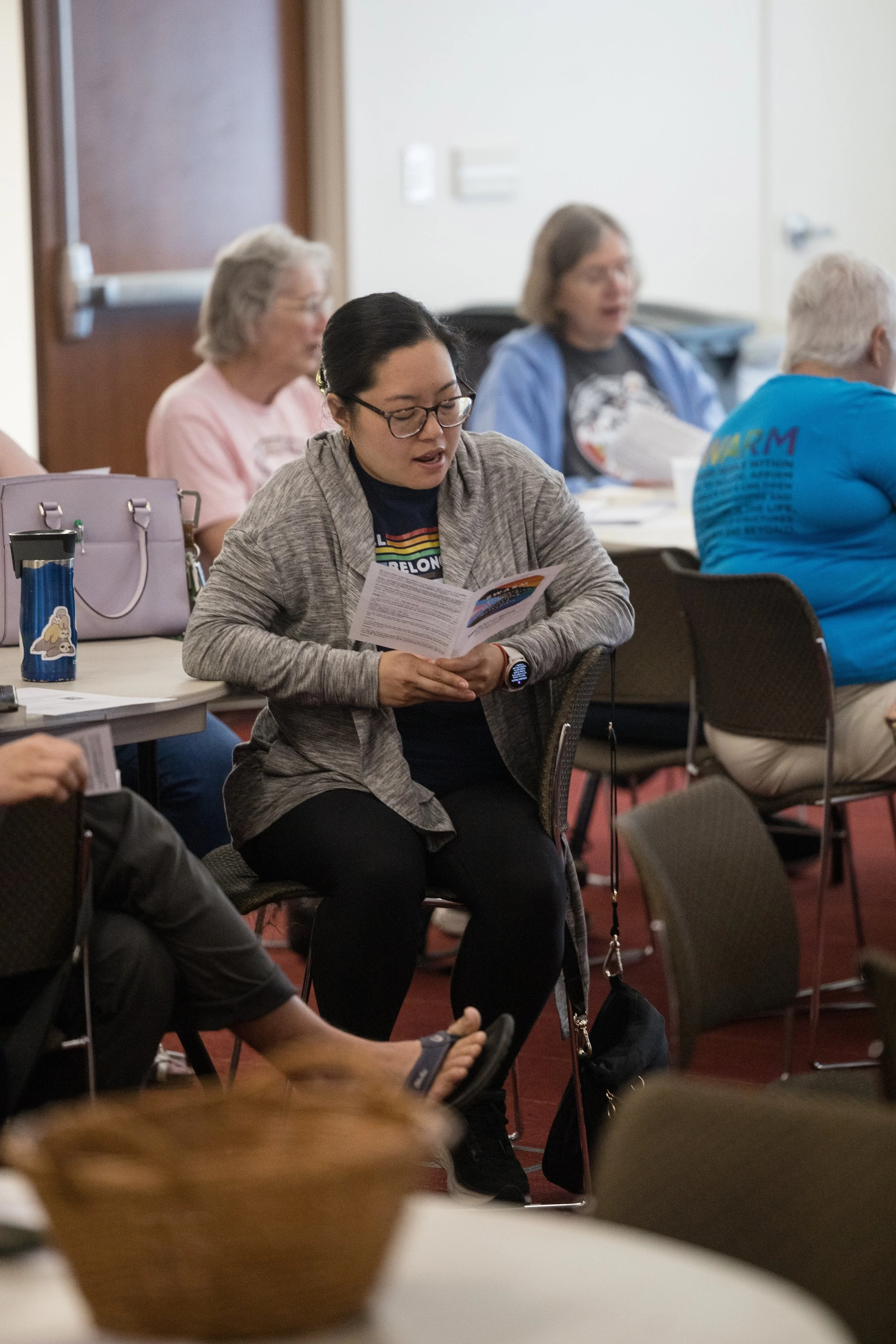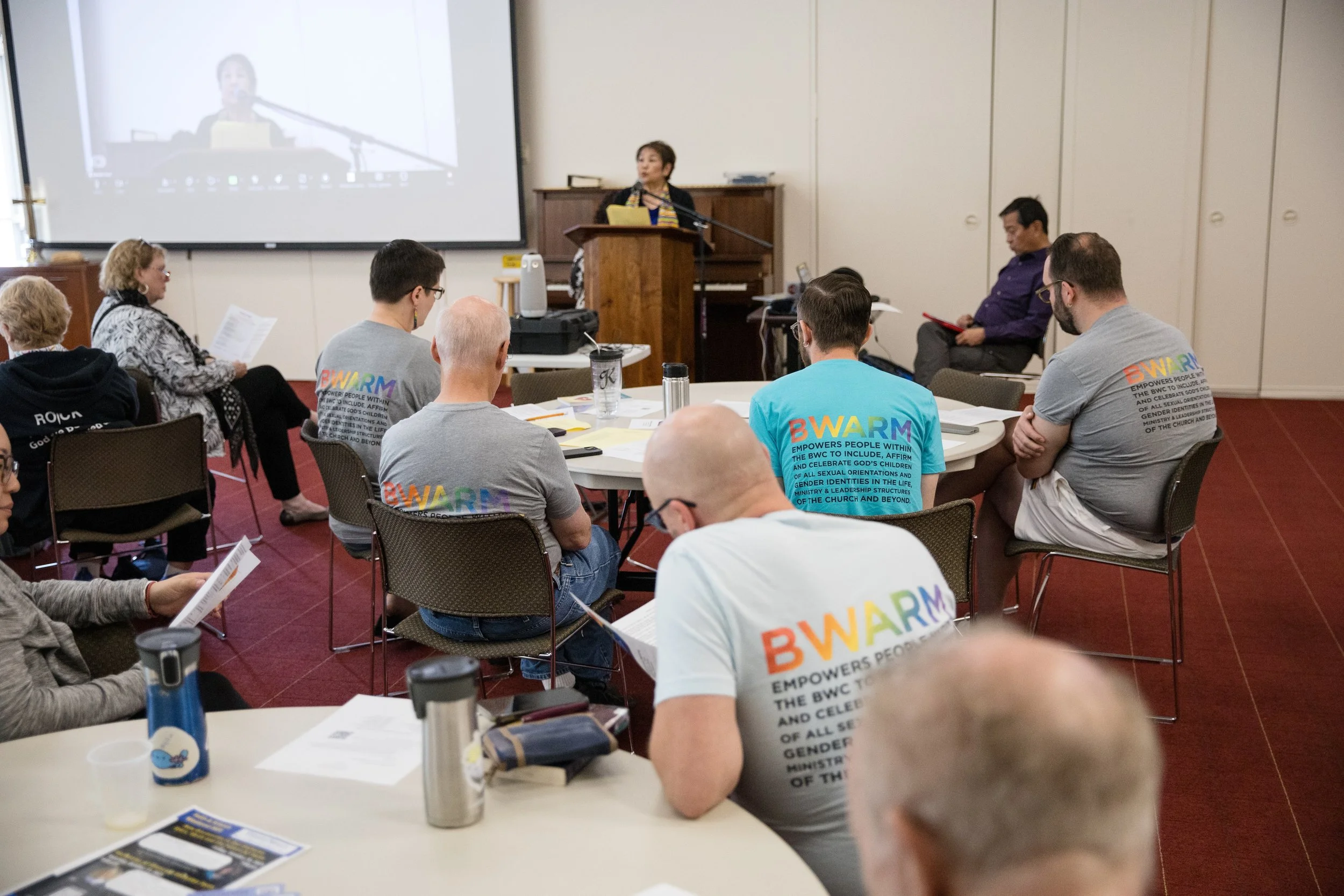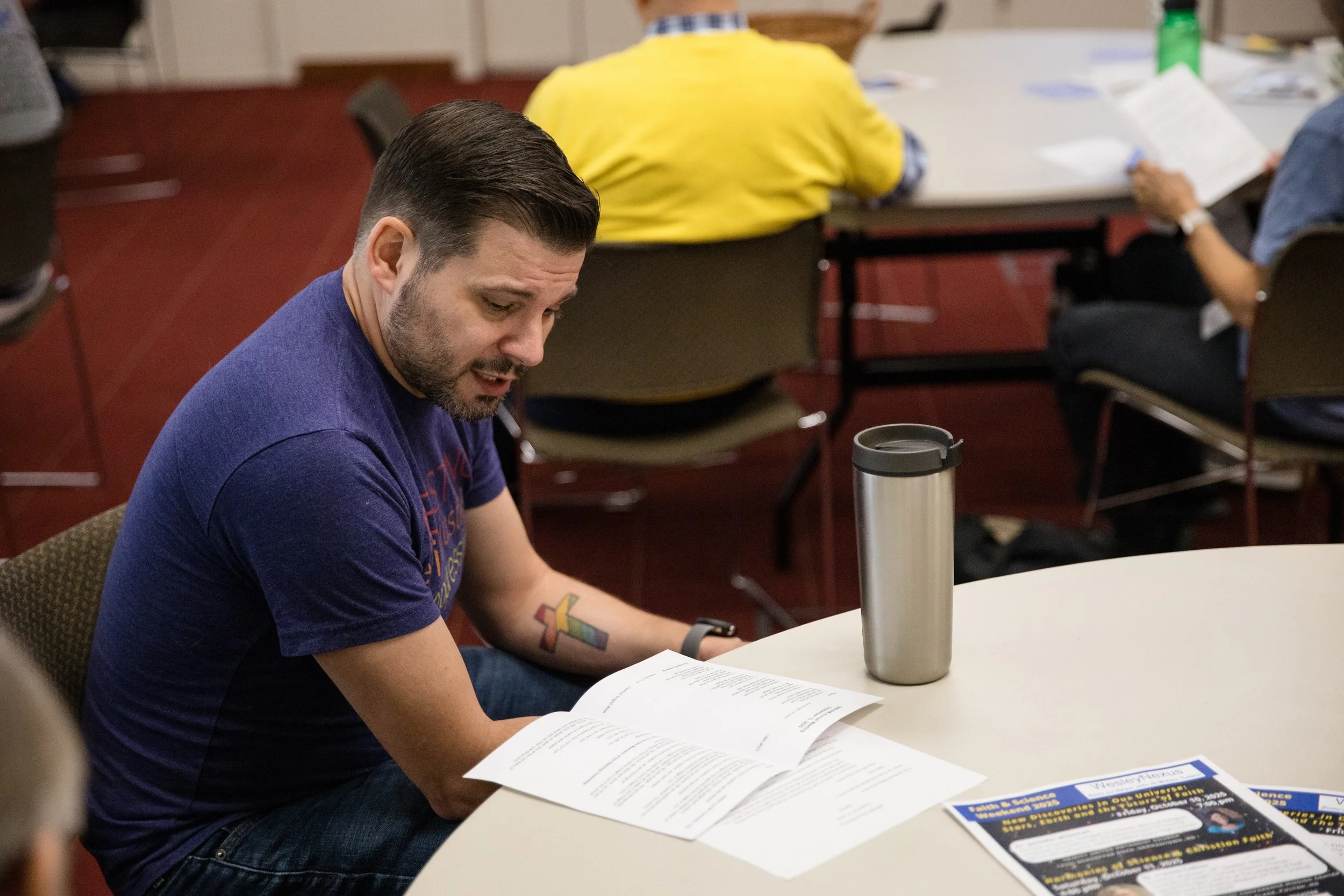BWARM Annual Meeting
On September 13th, BWARM gathered for its annual meeting where we passed revised bylaws and elected a new steering committee. Both votes passed unanimously. We heard a delightful lecture from guest speaker Dr. Ashley Boggan, General Secretary of the UM General Commission on Archives and History and closed in worship.
Read about the meeting here through the BWC Connection.
BWARM invites you to order one of our newly designed t-shirts featuring our new mission statement!
We are using the print-on-demand company Bonfire, which allows us to offer several colors in t-shirts and sweatshirts. Check out the options here.
When you go to the Bonfire website, click through to view various shirt options, colors and sizes. Youth sizes and slim fit are available as well - scroll across and click the arrow to see all the options.
BWARM’s new mission statement:
Everyone is a child of God! The Baltimore-Washington Area Reconciling United Methodists empowers people within the BWC to include, affirm and celebrate God’s children of all sexual orientations and gender identities in the life, ministry and leadership structures of the Church and beyond.














